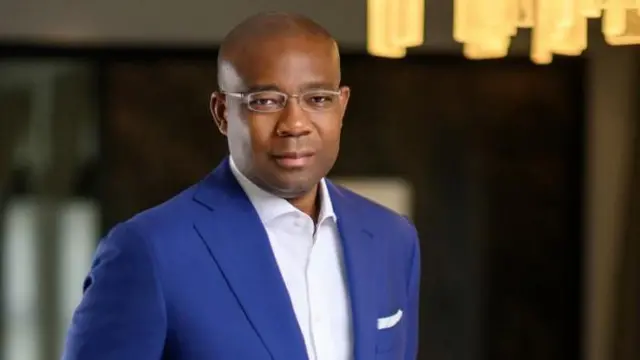The vibrancy and potential of Africa’s creative sector were on full display at the second edition of the Création Africa Forum, a landmark event dedicated to nurturing and developing the continent’s cultural and creative industries.
The two-day forum drew innovators, investors, policymakers, and young creatives from across Africa and beyond, creating a platform to explore strategies for harnessing Africa’s cultural capital and transforming it into sustainable economic growth.
A highlight of the event was the unterractive session with the renowned Nigerian businessman, investor, and philanthropist, Aigboje Aig-Imoukhuede FCIB, CFR.
Aig-Imoukhuede spoke with the authority of someone who has shaped industries and empowered communities through both vision and action.
He shared insights on the mindset and discipline required to turn creativity into tangible impact. For Aig-Imoukhuede, the foundation of success lies in passion and commitment. The most accomplished entrepreneurs and creatives, he observed, are those who possess a deep, almost messianic desire to communicate their ideas or services to others. Success, he explained, comes when ideas are packaged in a way that transforms lives, creating meaningful change for those who engage with them.
Ambition and drive are central to this process.
Aig-Imoukhuede described the restless energy that accompanies high-impact projects, noting that the difficulty in sleeping often stems not from excitement alone, but from the responsibility to ensure ideas reach their full potential. Many initiatives evolve beyond their original scope, often shaped by the input and creativity of teams, particularly young innovators. He emphasized that collaboration, sharing credit, and valuing contributions from others are essential to achieving outcomes far greater than any single individual could accomplish.
Communication, collaboration, and awareness of one’s impact were highlighted as vital principles for creatives. Above all, Aig-Imoukhuede stressed that hard work underpins lasting achievement. While natural talent and aptitude can make certain tasks easier, it is preparation, perseverance, and dedication that determine ultimate success. He cited examples from sports and creative industries, where individuals with superior talent were surpassed by those willing to invest consistent effort over time.
Business acumen, he continued, is equally critical. Building a successful enterprise requires long-term commitment, often over a decade, to realize its full potential. Many businesses fail not because the ideas are weak, but because the founders lack perseverance. Aig-Imoukhuede urged African entrepreneurs to cultivate grit, resilience, and strategic planning, highlighting that these qualities are as important as creativity and talent in sustaining long-term growth.
Emerging technologies, particularly artificial intelligence (AI), are already reshaping the landscape for African creatives. AI accelerates access to knowledge and levels the playing field, particularly for youth who may otherwise face barriers to education, research, and skill development. Aig-Imoukhuede cautioned that while AI presents enormous opportunities, it is crucial that cultural knowledge and intellectual property remain rooted in Africa to ensure equitable benefits.
Wealth creation, he argued, depends on the strategic interplay of three key forms of capital: knowledge, finance, and culture. Successful ventures leverage all three, using them to create products, services, and experiences that resonate with audiences while generating economic value. In creative industries like animation, gaming, and film, AI has the potential to exponentially increase output, enabling one individual or small teams to produce work that previously required hundreds of people. This, he noted, could transform the creative economy, generating new revenue streams and expanding opportunities for African creatives on a global scale.
For the continent, the implications are profound. African creatives will increasingly compete based on originality, intellectual property, and cultural authenticity rather than routine service delivery. Strategic collaboration between experienced business leaders, financiers, and creative talent is essential to maximize this potential. Policies, infrastructure, and leadership awareness must support the sector to elevate it from raw talent to a structured, sustainable industry capable of driving economic growth and social impact.
Looking globally, Aig-Imoukhuede highlighted the example of Gulf States, which have successfully developed long-term plans for creative sector growth, including museums, galleries, festivals, and enabling infrastructure. Africa, he argued, must adopt similar strategic frameworks, encouraging intra-continental competition, fostering innovation, and building policy and institutional support that enables sustainable creative industries.
The Création Africa Forum’s mission is clear: to provide visibility, confidence, and practical support to bold creators, connecting them with mentors, investors, and platforms that amplify their work. By nurturing talent, promoting collaboration, and embedding structure into the creative ecosystem, Africa can transform ideas into motion, dreams into careers, and potential into lasting impact.
As the forum concluded, it was evident that Africa’s creative industries are at a pivotal moment. With vision, structure, and strategic partnerships, the sector is poised not only to elevate the continent culturally but also to generate substantial economic growth, create employment opportunities, and contribute meaningfully to Africa’s global presence in arts, technology, and innovation.










